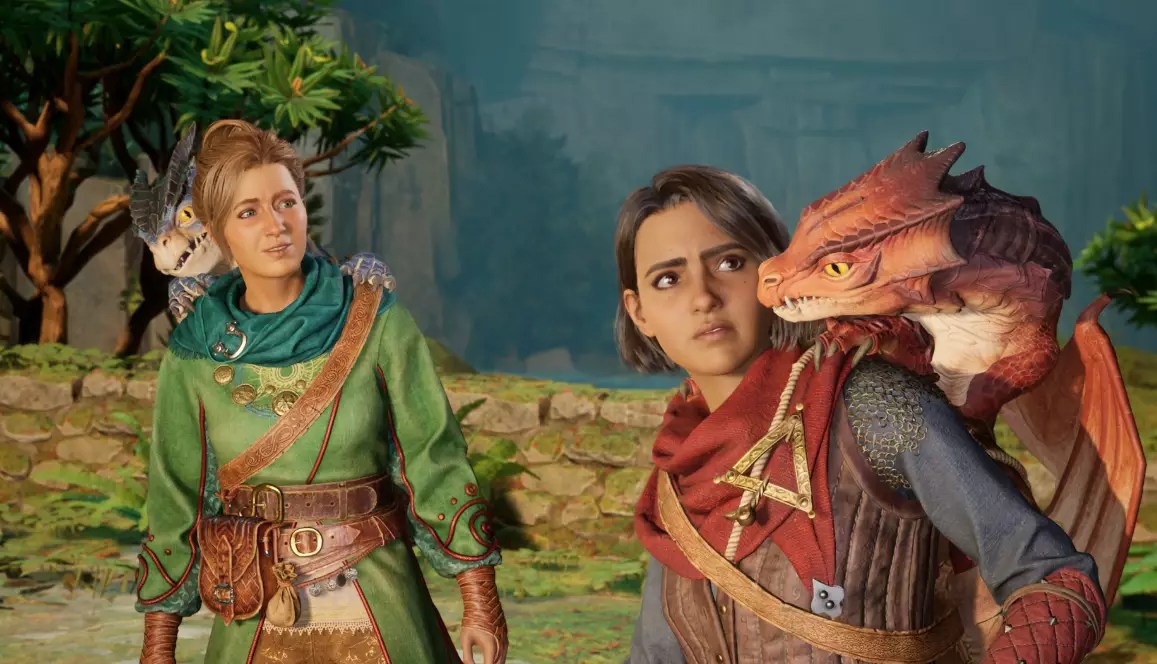In the ever-evolving landscape of video game development, the announcement of Hazelight Studios’ latest title, *Split Fiction*, has piqued the interest of both gamers and industry insiders. Following the monumental success of *It Takes Two*, which surpassed 20 million sales, the upcoming release scheduled for March showcases the story of characters Mio and Zoe. Their adventure centers around a machine that appropriates the creative output of writers without compensation—an increasingly relevant plotline given the current discourse surrounding artificial intelligence (AI) and its implications on the arts. As developers adapt to this technological tide, one pivotal voice, Hazelight’s co-founder Josef Fares, has emerged to discuss the complicated relationship between gaming and AI.
Josef Fares, known for his candid and sometimes controversial remarks, weighed in on the dual nature of AI advancements during an interview with VGC. He characterized this development as “both scary and very exciting,” encapsulating the dilemma that many in the industry face. Fares advocates for a cooperative approach to AI, asserting that it is essential for the gaming industry to “work with it and not against it.” His belief is that embracing AI can lead to the creation of superior gaming experiences, a sentiment that is becoming increasingly important as game developers navigate the changing tools at their disposal.
However, one cannot overlook the anxiety surrounding potential job losses that arise from the integration of AI tools. In a recent study, a significant portion of game developers acknowledged using AI within their workflow, exposing a divide between innovation and job security. Fares recognizes that while the evolution of AI may disrupt existing roles, it is a natural progression akin to previous technological advancements. “If it’s part of the industry, we should see how to implement it to get better games,” he states, suggesting a forward-thinking mindset.
Contrary to Fares’ optimism, industry peers like Strauss Zelnick of Take-Two Interactive express skepticism regarding the concept of AI. Zelnick referred to AI as an “oxymoron,” emphasizing that machines do not genuinely learn as humans do. His cautionary approach is rooted in the belief that the innate creativity and intuition of humans cannot be replicated by machines, maintaining that they will always be integral to the game development process.
This debate is further complicated by the ongoing strikes among video game performers, in which the implications of AI are a key contention point. Veteran voice actor Jennifer Hale has described AI as an “existential” threat to the future of performance in video games. The emotional weight of her statement underscores the fear within the creative community about being replaced or, worse, the potential commodification of their craft.
Fares maintains that it would be unwise to ignore AI’s growing influence, stating that he believes it will eclipse the internet’s impact in the long run. This perspective raises fundamental questions about the role of human creativity in a world increasingly driven by algorithms and machine learning. The tension between innovation and traditional artistry creates a volatile environment, where technologies can lead to both enhanced experiences and ethical dilemmas.
The arrival of AI in video game development marks a transformative period that demands a reassessment of roles within the industry. Will developers harness AI to elevate their work, driving even more engaging narratives and gameplay mechanics? Or will the reliance on AI pose significant risks that threaten the authenticity and labor of creative professionals?
As we look ahead, the key challenge for the gaming industry lies in balancing technological advancements with the preservation of the human element in storytelling and creativity. The voices of those like Josef Fares are critical in shaping the dialogue surrounding AI, encouraging both exploration and caution. Players, developers, and creatives must engage in conversations about AI’s role, ensuring that the industry’s evolution benefits all stakeholders. Ultimately, if embraced wisely, AI could be the key to unlocking new heights in gaming experiences—transforming challenges into opportunities for innovation.


Leave a Reply